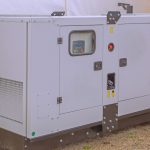
Reducing your electric bill can be straightforward with a few smart changes around your home. Here are some tips that can make a noticeable difference. Apply as many of these tips as possible. The more you save the better for everyone.
Monitor Your Water Heater
One of the biggest contributors to your electric bill is the water heater. For a large family, this can be a significant expense. Switching to a heat pump water heater can cut costs dramatically. These are much more efficient than traditional electric water heaters. Although there is an upfront cost, many utilities offer rebates, and these heaters often pay for themselves within a few years. If a new heater isn’t an option, consider installing a timer to limit the hours your water heater is active.
Upgrade Your Appliances
Older appliances, especially refrigerators and freezers, can consume a lot of electricity. If you have an old spare fridge that isn’t used much, consider removing it. Modern refrigerators are far more energy-efficient. Similarly, replacing an old washing machine, dryer, or dishwasher with new energy-efficient models can save a lot of electricity.
Use Smart Thermostats
Heating and cooling your home efficiently is crucial. A smart thermostat can be programmed to adjust the temperature based on when you are home or away. During the summer, set your thermostat a bit higher when you’re not home. In the winter, keep it a bit cooler. These small adjustments can lead to significant savings over time.
Optimize Your Lighting
Switching to LED bulbs can save energy. LEDs use less power and last much longer than traditional incandescent bulbs. While the initial cost is higher, the long-term savings are worth it. Be sure to turn off lights when they are not needed. For areas like closets or garages, consider installing motion-sensor lights that turn off automatically.
Unplug Electronics
Many electronics draw power even when they are turned off. Unplugging devices or using a smart power strip that cuts power to devices when they are not in use can help reduce these “phantom loads”.
Insulate Your Home
Proper insulation can keep your home warmer in the winter and cooler in the summer, reducing the need for heating and cooling. Check your attic, walls, and floors for proper insulation. Adding insulation can be a cost-effective way to reduce your electric bill.
Use Energy-Efficient Windows
If your home has older windows, they might be letting out heat in the winter and letting it in during the summer. Upgrading to energy-efficient windows can reduce your heating and cooling costs. In the meantime, using thick curtains or window film can help.
Install a Programmable Timer for Appliances
Some appliances, like water heaters and pool pumps, can be put on timers to run during off-peak hours when electricity is cheaper. This can also help you avoid running them during the hottest parts of the day in the summer, which can add to your cooling load.
Regular Maintenance
Keep your HVAC system in good shape with regular maintenance. Clean or replace filters regularly. Dirty filters force your system to work harder, using more energy. Also, ensure that your ducts are sealed properly to prevent leaks.
Energy Audit
Many utility companies offer free or low-cost energy audits. An energy audit can identify where your home is losing energy and suggest improvements. This can be a great way to find out which upgrades will give you the most significant savings.
Implementing these tips can help reduce your electricity usage and save you monthly money. Start with the changes that are easiest for you to make and gradually work towards the larger investments for maximum efficiency and savings. You can always contact us for help if you need some upgrading to your electrical equipment.




